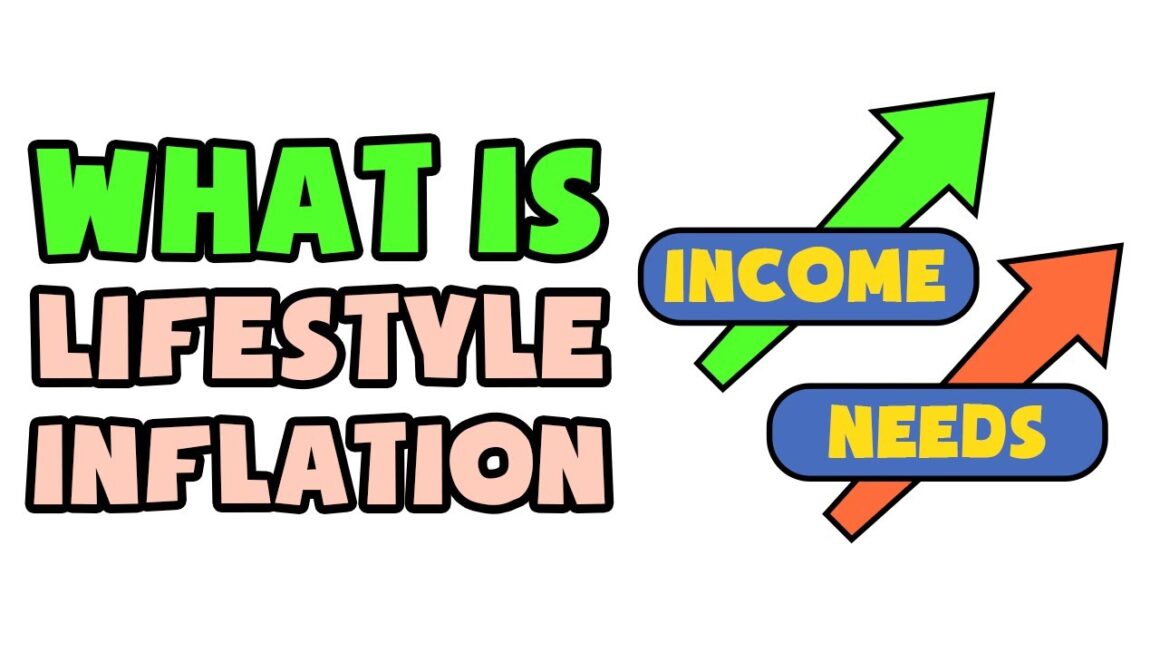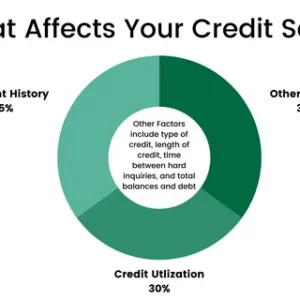
 Introduction: When More Money Doesn’t Mean More Wealth
Introduction: When More Money Doesn’t Mean More Wealth
Have you ever wondered why some people seem to stay broke no matter how much they earn? They get a raise, land a better-paying job, or even move abroad, yet financial stress still lingers. The culprit is something subtle yet powerful: lifestyle inflation.
Nigerian finance companies constantly warn their customers about this trap—and it’s a lesson that applies just as strongly in Canada and the USA. Lifestyle inflation happens when your spending habits grow alongside your income. You feel richer, but in reality, you’re just chasing a moving target.
This is the silent enemy of wealth. While your paycheck grows, so do your expenses—until there’s nothing left to save, invest, or use for emergencies. And worse, you may even dip into debt to sustain a lifestyle you can’t truly afford.
In this post, we’ll explore:
- Why lifestyle inflation happens and why it’s so dangerous
- The specific warnings Nigerian finance companies give their customers
- How the same warnings apply to Canadians and Americans
- Practical strategies to stop lifestyle creep in its tracks
- A comparison table that clearly shows the financial difference between lifestyle inflation and controlled spending
- Real-world stories of people who fell victim—and those who resisted
Let’s dig in.
What Exactly Is Lifestyle Inflation?
Lifestyle inflation (sometimes called lifestyle creep) is when your expenses rise as your income rises. For example:
- A promotion leads to a more expensive apartment.
- A raise leads to frequent fine dining instead of home cooking.
- A bigger bonus becomes an excuse for a new car, even when the old one still works.
It often feels natural and harmless. After all, you’re earning more, so why not enjoy it? But finance companies warn that the danger lies in the unconscious escalation of spending without a matching increase in savings or investments.
This is how people end up making six figures in Toronto or New York and still living paycheck to paycheck.
The Psychology of Lifestyle Inflation
Why do so many fall into this trap—even smart, disciplined people?
- Reward Mentality – After working hard, we feel we “deserve” to upgrade our lifestyle.
- Social Pressure – Friends, colleagues, and even social media influencers constantly showcase upgrades—making us feel left behind.
- The Illusion of Security – Higher pay gives the false impression that financial problems are solved, encouraging riskier spending.
- Short-Term Gratification – Human brains love instant rewards more than long-term stability.
This isn’t just theory. A Bankrate study revealed that even high-income households in North America often struggle to save—because their spending rises as fast as their paychecks.
Warnings from Nigerian Finance Companies
Finance companies in Nigeria deal with thousands of clients, from salaried professionals to entrepreneurs. Their biggest warnings about lifestyle inflation include:
- Debt dependency: Many customers use personal loans, credit cards, or payday lenders to sustain inflated lifestyles.
- Emergency vulnerability: Without an emergency fund, sudden expenses (medical bills, job loss, inflation shocks) quickly turn into financial disasters.
- Illusion of wealth: Expensive clothes, cars, or smartphones may create a wealthy appearance, but without savings and assets, it’s all surface-level.
- Broken financial plans: Even those with clear investment goals often fail to meet them because lifestyle costs eat up all disposable income.
These warnings apply globally. In the USA, credit card debt crossed $1.08 trillion in 2024, showing how lifestyle creep pushes even middle-class earners into borrowing.
Lifestyle Inflation in Canada and the USA: The Same Problem, Different Packaging
Though the cultural triggers vary, lifestyle creep looks the same across countries.
Common Traps in Nigeria
- Buying newer cars every few years
- Spending excessively on weddings, parties, or traditional attire
- Renting in luxury neighborhoods for status
- Heavy dependence on imported goods
Common Traps in Canada and the USA
- Buying larger homes with higher mortgages, even when not necessary
- Overloading on subscription services (Netflix, Disney+, Spotify, gym, apps)
- Constantly upgrading to the latest iPhone, MacBook, or gadget
- Over-reliance on food delivery, coffee runs, and “convenience” purchases
The key similarity? Spending increases without any improvement in long-term financial security.
The Hidden Dangers of Lifestyle Creep
Lifestyle creep doesn’t appear overnight. It sneaks in quietly, disguised as rewards you’ve earned or normal upgrades you deserve. That’s what makes it so dangerous—it rarely feels like a threat until it’s already sabotaging your financial health. Nigerian finance companies describe it as the “sweet poison of personal finance”: tempting in the moment, but destructive over time.
Here are the hidden dangers you must watch out for:
1. The Illusion of Wealth
Lifestyle creep convinces you that you are doing better financially than you actually are.
- You buy a luxury car, a bigger house, or the latest phone, and you look wealthy.
- But beneath the surface, your net worth hasn’t grown—or worse, it has shrunk.
- In reality, assets build wealth, not appearances.
Many professionals in Lagos, Toronto, and New York look “rich” because of visible spending. But without savings, investments, or assets, they’re just one job loss away from financial ruin.
2. Stagnant or Declining Savings
Every time income grows, so do expenses. If you don’t consciously save first, your savings remain flat while your lifestyle skyrockets.
- A raise that should have boosted your emergency fund ends up funding Friday night dinners.
- A bonus that could have grown in investments is spent on vacations or luxury gadgets.
Over years, this leads to a shocking reality: people making six figures in Canada or the USA often have the same—or less—savings as people earning far less.
3. The Debt Spiral
One of the biggest warnings from Nigerian finance companies is that lifestyle inflation pushes people into unnecessary debt.
- Credit cards become the bridge to sustain a lifestyle you can’t really afford.
- Loans are taken for things that depreciate (cars, clothes, luxury items) instead of assets that appreciate.
- Over time, interest payments consume a large chunk of income, leaving you poorer despite earning more.
This debt spiral is also rampant in North America. According to CNBC, U.S. credit card debt hit a record $1.08 trillion in 2024—a direct reflection of unchecked lifestyle spending.
4. Erosion of Financial Security
When lifestyle consumes all extra income, there’s nothing left for emergencies. This is dangerous because:
- Job loss, medical bills, or inflation shocks can push you into financial crisis.
- Without a safety net, you’re forced to borrow at high interest.
- Financial anxiety builds, creating stress even when you’re earning more.
Many Nigerians during the recent fuel subsidy removal crisis found themselves stranded—not because they didn’t earn, but because lifestyle inflation left no room for emergency funds.
5. Broken Long-Term Goals
Lifestyle creep robs your future to feed the present.
- Retirement accounts stay underfunded.
- Investments are delayed “until next year” while money flows to temporary pleasures.
- Wealth-building goals—like home ownership or financial independence—are postponed indefinitely.
This hidden danger compounds over decades. A Canadian who invests $500 a month instead of inflating lifestyle could have over $750,000 in retirement savings after 30 years. A peer who spends the same $500 each month will have nothing.
6. Emotional and Psychological Stress
Another overlooked danger is the emotional toll of lifestyle creep.
- The constant pressure to maintain an image leads to financial anxiety.
- Many feel trapped, unable to downgrade their lifestyle without embarrassment.
- Financial dependence on loans creates a cycle of guilt and stress.
In extreme cases, people suffer “golden handcuffs”—stuck in high-paying jobs they hate because their lifestyle expenses demand it.
7. Reduced Flexibility and Freedom
True financial freedom is the ability to say no:
- No to toxic jobs.
- No to unnecessary overtime.
- No to unhealthy financial stress.
But lifestyle inflation erodes this freedom. If your income is tied to an inflated lifestyle, you lose flexibility. You’re forced to keep running harder on the treadmill, working longer hours just to stay afloat.
8. Generational Impact
The ripple effects of lifestyle creep extend beyond individuals.
- Parents who overspend leave little wealth to pass down.
- Children grow up with consumption habits modeled as “normal,” perpetuating the cycle.
- Without intentional wealth-building, families remain stuck in financial vulnerability across generations.
Nigerian finance companies stress this point strongly: a flashy lifestyle today can rob your children of opportunities tomorrow.
Key Takeaway: Lifestyle Creep Is Wealth in Disguise—Lost Wealth
The hidden danger of lifestyle inflation is not the spending itself—it’s the opportunity cost. Every inflated expense is money that could have been:
- Compounding in an investment account
- Growing in real estate or stocks
- Securing your retirement
- Cushioning your family against economic shocks
Instead, it’s gone forever on things that fade—clothes, cars, gadgets, or fleeting status symbols.
Lifestyle Inflation vs Controlled Spending: A Side-by-Side Look
Here’s a practical comparison:
| Scenario | Lifestyle Inflation | Controlled Spending |
|---|---|---|
| Income rises by $1,000 | Buys a bigger car with $800/month payments | Allocates $700 to investments, $200 to savings, $100 for leisure |
| Monthly dining budget | Grows from $200 to $600 with salary increase | Keeps dining at $250, enjoys occasional splurge |
| Tech & gadgets | Buys the latest phone yearly | Upgrades only when needed, saves the difference |
| Savings & emergency fund | Remains stagnant despite income growth | Expands proportionally with income growth |
| Long-term wealth outlook | Always struggling, reliant on loans | Builds financial independence and stability |
This table shows why two people with the same salary can end up in completely different financial realities.
Strategies to Avoid Lifestyle Inflation
Here are practical tips recommended by Nigerian finance companies—equally valuable in Canada and the USA:
1. Automate Your Finances
- Set up direct deposits into savings and investment accounts.
- Treat savings as a monthly bill—non-negotiable.
2. Use the 50/30/20 Rule
- 50% for needs, 30% for wants, 20% for savings and investments.
- Adjust as income rises to boost the savings percentage.
3. Delay Gratification
- Instead of buying instantly, adopt a 30-day rule for big purchases.
- Most “wants” lose their urgency after some time.
4. Avoid “Comparison Spending”
- Stop matching your lifestyle to others.
- Remember: their flashy car may be financed with crushing debt.
5. Upgrade Intentionally
- If you must upgrade, increase savings proportionally first.
- Example: For every $500 raise, commit $300 to investments before touching lifestyle.
6. Build Multiple Streams of Income
- Side hustles, freelance gigs, or passive investments expand income.
- Resist the temptation to inflate spending just because you earn more.
7. Track Your Progress
- Use budgeting apps like Mint, YNAB, or PocketGuard.
- Nigerian apps like PiggyVest and Cowrywise also encourage intentional saving.
Storytelling: The Trap vs The Triumph
Case 1: The Trap
Chika, a tech worker in Lagos, doubled her salary in three years. But with each raise came an upgrade—new car, designer wardrobe, luxury apartment. By year five, she was living paycheck to paycheck, with no emergency fund. When her company downsized, she had nothing to fall back on.
Case 2: The Triumph
In contrast, Michael, a Canadian accountant, resisted lifestyle creep. Each raise went into his RRSP and index funds. He lived in the same modest apartment for six years, drove a used car, and avoided status purchases. By 35, he had built a six-figure investment portfolio—while peers with higher salaries had none.
Tools and Apps That Help
- Canada/USA: Wealthsimple, Questrade, Betterment, Mint, YNAB
- Nigeria: PiggyVest, Cowrywise, Risevest, Bamboo
- These apps automate saving, track expenses, and redirect money into assets instead of lifestyle luxuries.
The Global Lesson
Whether in Lagos, Toronto, or New York, the rule is universal:
If your lifestyle grows faster than your wealth, you’ll always feel broke.
Finance companies issue the same warnings because lifestyle inflation is borderless. The only difference is the cultural packaging—different triggers, same result.
Conclusion: Break Free from the Illusion
Avoiding lifestyle inflation isn’t about living like a miser. It’s about living intentionally. Nigerian finance companies put it simply: “Don’t eat with ten fingers when you earn with two.”
The next time your paycheck grows, don’t just ask, “What can I buy?” Instead, ask:
👉 “What can I build?”
Choose to build assets, savings, and security. That’s how you turn more money into real wealth—not just appearances.
Got it 👍 To round off your blog post and make it even more SEO-friendly, here’s a FAQ section on Lifestyle Inflation / Lifestyle Creep. These FAQs are conversational, clear, and structured for mobile readability:
FAQ
1. What is lifestyle inflation?
Lifestyle inflation (or lifestyle creep) happens when your spending increases as your income increases. Instead of saving or investing the extra money, you upgrade your lifestyle—bigger house, newer car, more dining out—which leaves your financial situation unchanged despite higher earnings.
2. Why is lifestyle inflation dangerous?
It’s dangerous because it creates the illusion of wealth. You look richer, but in reality:
- Savings stay stagnant
- Debt often increases
- Emergency funds are missing
- Long-term goals (like retirement) get delayed
Over time, it can trap you in a paycheck-to-paycheck cycle, even with a high salary.
3. How can I tell if I’m a victim of lifestyle creep?
Some warning signs include:
- You get a raise but still feel broke at the end of each month.
- Your expenses rise with every promotion.
- You rely on loans or credit cards to sustain your lifestyle.
- You have little or no savings despite steady income growth.
4. What do Nigerian finance companies say about lifestyle inflation?
Nigerian finance companies often warn clients that lifestyle creep leads to debt dependence, poor savings habits, and financial fragility during inflation or economic shocks. They advise customers to prioritize investments and emergency funds before upgrading their lifestyles.
5. Is lifestyle inflation only a problem in Nigeria?
No—it’s a global issue. In Canada and the USA, people fall into the same trap by upgrading homes, cars, or subscriptions whenever their salary rises. U.S. households, for example, carry record-high credit card debt because of lifestyle spending habits.
6. How can I avoid lifestyle inflation?
- Automate savings and investments
- Follow the 50/30/20 rule (needs/wants/savings)
- Delay gratification (e.g., 30-day rule for big purchases)
- Upgrade only after securing savings goals
- Avoid comparison spending with peers or colleagues
7. Can lifestyle creep ever be a good thing?
Yes—if it’s intentional and controlled. For example, upgrading from unsafe housing to a better neighborhood or investing in professional development can improve your quality of life. The problem arises when upgrades are impulsive and unplanned, leaving no room for financial security.
8. What’s the best mindset to fight lifestyle inflation?
Think in terms of assets, not appearances. Every time your income increases, ask yourself:
👉 “Will this money build long-term wealth—or just fund short-term spending?”
The goal is to grow net worth, not just upgrade lifestyle.






